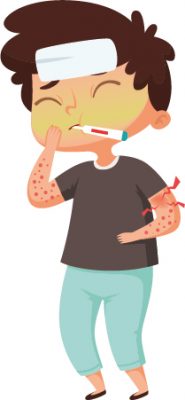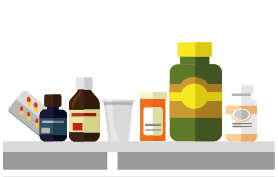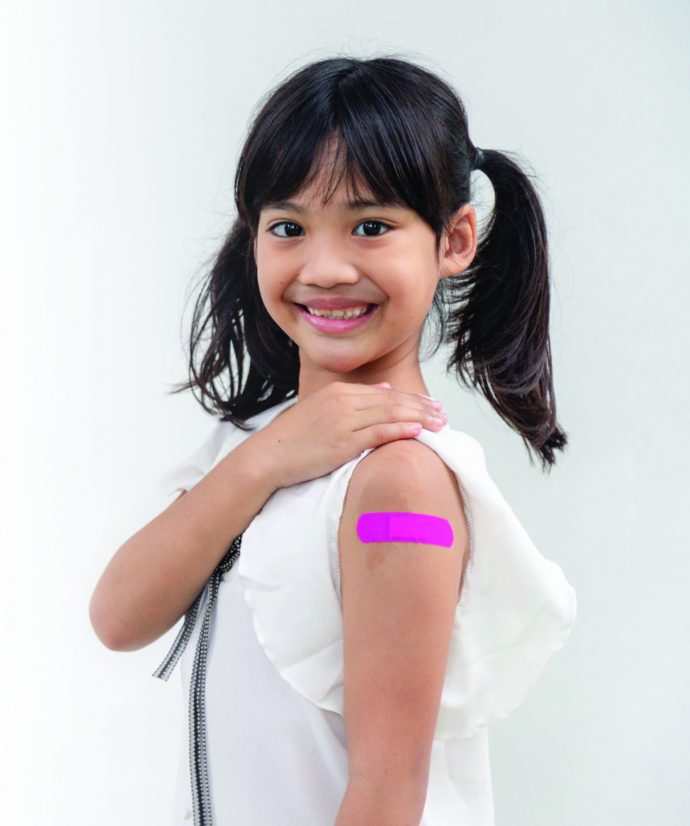Many parents worry about the side effects of vaccines. Though these are usually mild, here are some useful tips about vaccine aftercare for children.
Side effects of vaccines

After getting your little one vaccinated, it is common for them to experience some side effects. The majority of vaccine side effects are mild and should resolve within a few hours to a few days.
Examples of common vaccine side effects in children
- Pain, swelling, or redness at the site of injection
- Fever and/or chills
- Headaches
- Muscle pains
- Joint stiffness
- Rashes (particularly with the MMR or chickenpox vaccines)
- Nausea and/or vomiting
- Fatigue or general tiredness
- Loss of appetite
Vaccine aftercare
The jab of a vaccine can be a scary moment for many children. Parents can help to create a better vaccination experience for their child with proper vaccine aftercare.
- Provide plenty of fluids. Make sure your child drinks water regularly to keep hydrated.
- Encourage your child to rest. Limit physically strenuous activities (e.g. exercise, competitive sports) and social activities (e.g. going out to meet friends). Instead, encourage your child to partake in activities that require less physical exertion like watching TV, reading a book, drawing, etc.
- Make sure they get enough sleep. Getting some sleep may be difficult for a child who is experiencing some side effects. Encourage and help your child to get some sleep because it helps to support their immune system.
- Give some extra love and care. Particularly with younger children, setting aside some extra cuddles and comfort time can go a long way.
Coping with specific symptoms
Pain, swelling, or redness at the site of injection
- Applying a cool damp cloth or a wrapped ice pack on the site of injection may help soothe the area.
- Encourage your child to gently move the affected limb. This can help prevent further stiffness by loosening up sore muscles.
- Prevent your child from touching, scratching, or rubbing the site of injection to prevent further irritation.
- Consider an analgesic like paracetamol or ibuprofen.
Fever and/or chills
- Dress your child lightly to reduce discomfort.
- Consider an anti-pyretic such as paracetamol or ibuprofen
Over-the-counter (OTC) medications

Many over-the-counter (OTC) pain relief medications are available for children, like paracetamol (also known as acetaminophen) or ibuprofen. These medications have analgesic (pain-relieving) and antipyretic (fever-reducing) properties, which can help to relieve many post-vaccination symptoms. Analgesics can help reduce pain/swelling/redness at the site of injection, headaches, and muscle/joint pains, while antipyretics can help reduce fevers.
However, acetylsalicylic acid (ASA – also known as aspirin) should not be given to children below 16 years old because of the possibility of Reye’s syndrome. This is a rare condition that has been linked to the use of ASA in children and adolescents. It causes swelling in the liver and brain which can lead to permanent injuries.
When to seek medical help
The side effects of vaccines should resolve within a few days. Keep a closer watch on your children after they are vaccinated.
Seek medical help if:
- Your child starts exhibiting serious symptoms (difficulty breathing, swelling of the face/throat, increased heart rate, severe rash all over the body, and seizures).
- If post-vaccination symptoms persist for many days, without any sign of getting better.
- If post-vaccination symptoms get worse after 24 hours.






Comments